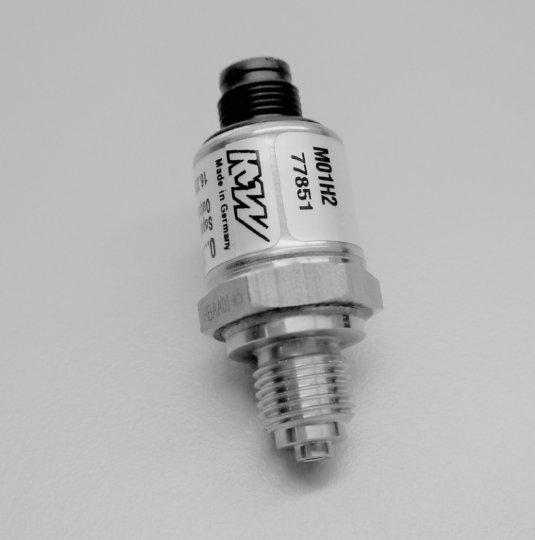A primary factor driving these advances has been growing demand for pressure sensors from the hydrogen economy. To counter hydrogen’s ability to permeate metals, KMW has designed diaphragms in materials and dimensions that exhibit lower deformation under pressure than components matched to less exacting media. To counter this increased stiffness, KMW employs a new generation of functional layers in new materials, which, in turn, has led to the use of a new passivation material.
"Our major task in hydrogen applications was to maintain the excellent measuring accuracy of our thin-film sensors in both automotive applications (fuel cells) and the hydrogen production and supply infrastructure, while countering the tendency of hydrogen to permeate steel and other material” notes Herbert Holzheu, KMW’s head of development. “This led us to employ extremely sensitive functional layers in innovative materials and more robust, resistant substrates. The new functional layers are capable of creating signals of processable strength from much smaller deformations in sensing element membranes with higher resistance to bending. Similarly, the new functional layers required passivation layers in new, better performing materials.”
The value of KMW’s deployment of new, higher performance materials is also demonstrated in the increased temperature stability of its type Z01 sensors for measuring cylinder pressure in large engines. This results from the use of a new more effective passivation layer, which is also closely matched to a new, functional layer material with increased sensitivity. “Developments like higher fuel injection pressures and high pressure two-stage turbocharging are increasing the temperature and pressure of combustion in large diesel, gas and dual-fuel engines. While we can measure very high pressures with thin film sensors, the temperature of the medium is a limiting factor,” Holzheu notes. “This is especially true in the cylinders of combustion engines, where temperatures vary considerably from the induction stroke, when the relatively cool air or air/fuel mixture enters the cylinder, to the power stroke where combustion takes place and the temperature rises rapidly. The increase in temperature stability we achieve in our cylinder pressure sensors for large engines due to our new passivation layer material enables our new functional layer material to measure cylinder pressure more effectively.”
KMW’s contribution to advanced data acquisition centers on our custom-designed, high precision sensors employing thin-film technology. As well as their accuracy, stability and reliability, thin-film sensors from KMW are capable of delivering simultaneous signals for both temperature and pressure. Their robust construction makes them readily adaptable to operation under high pressures and temperatures in exacting fields of application, while their long effective life means that their exchange intervals are counted in millions of cycles, even in the most demanding applications. Most importantly, KMW thin film sensors can be produced in batch quantities on an industrial scale, adding economic production to their precise and reliable data gathering.
(STW) Sensor-Technik Wiedemann GmbH
Am Bärenwald 6
87600 Kaufbeuren
Telefon: +49 (8341) 9505-0
Telefax: +49 (8341) 9505-55
http://www.stw-mm.com
![]()
